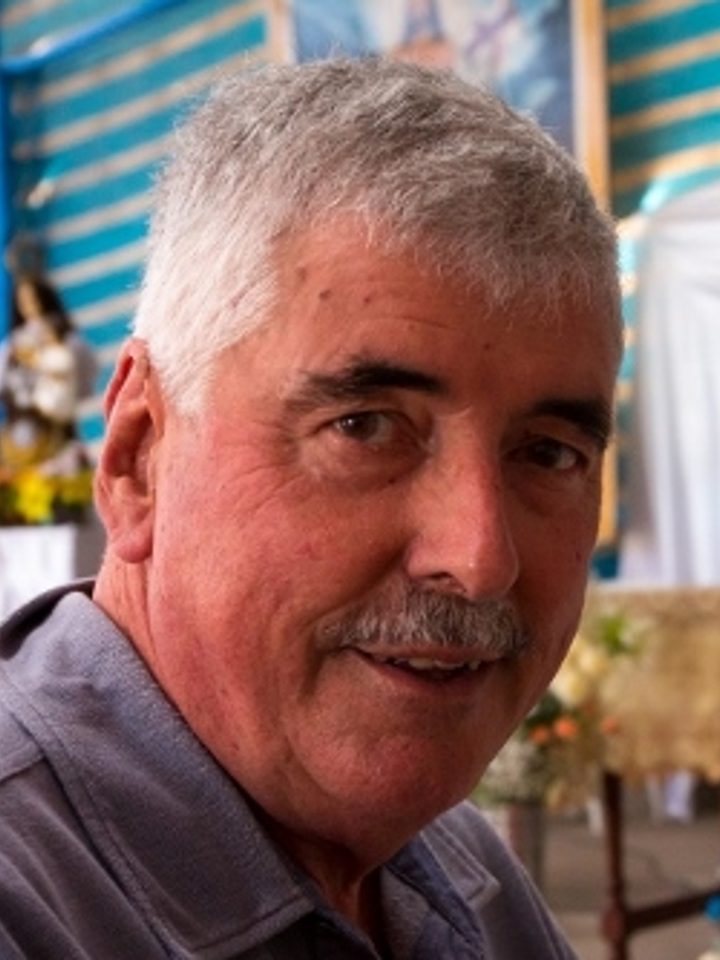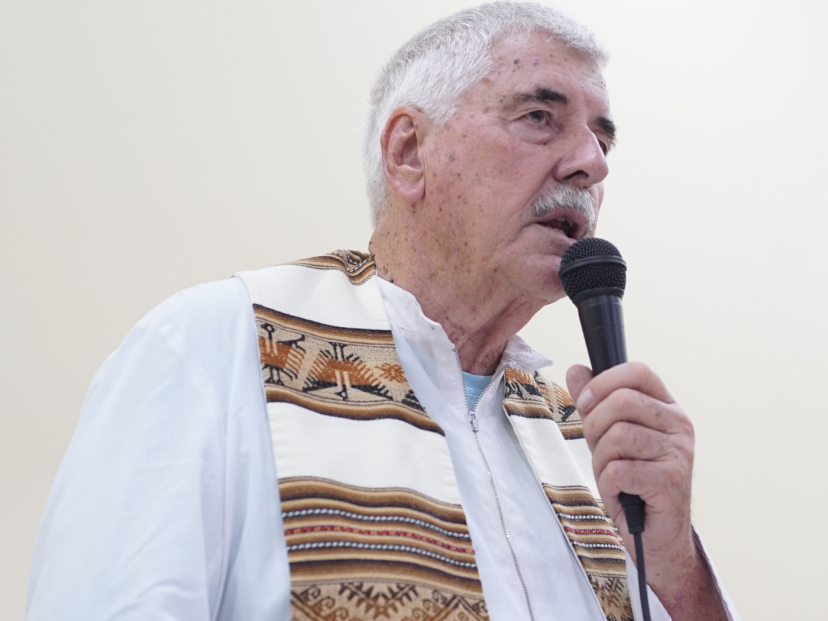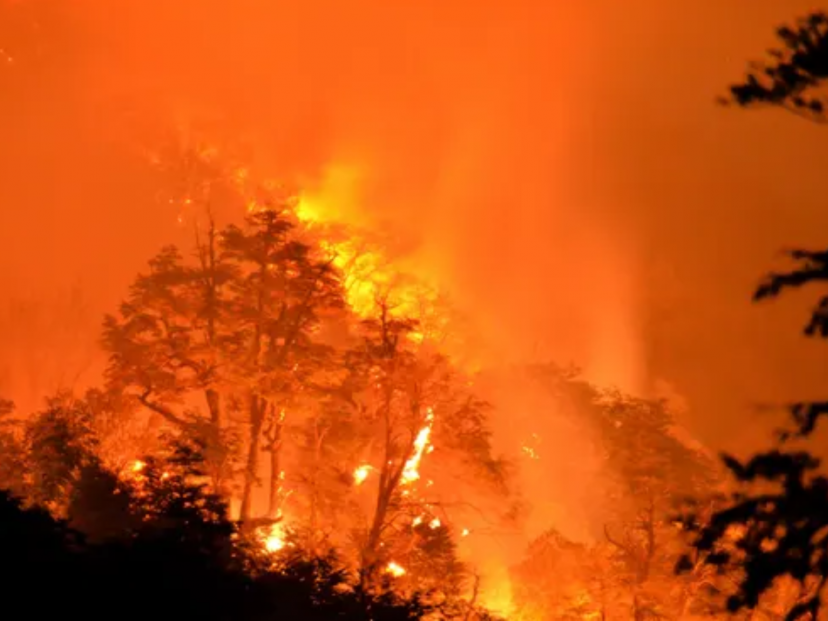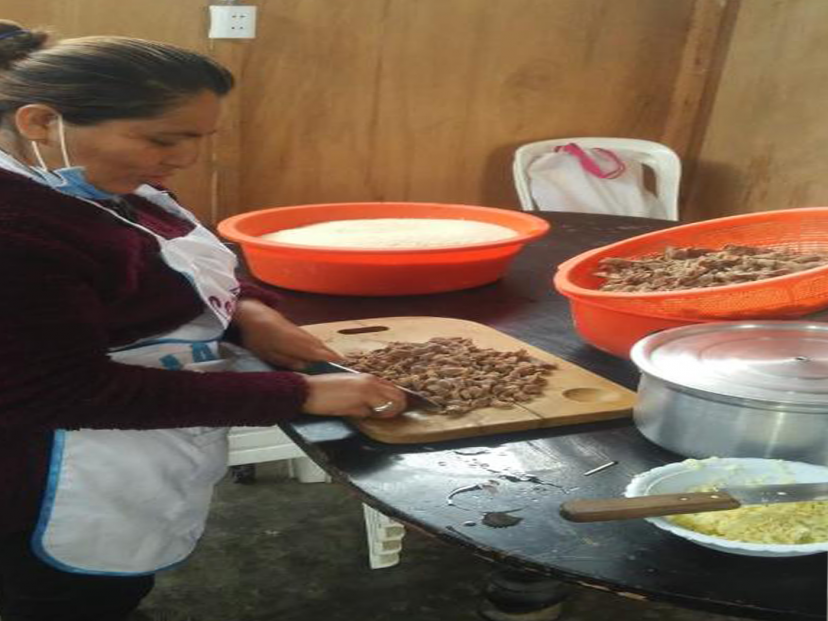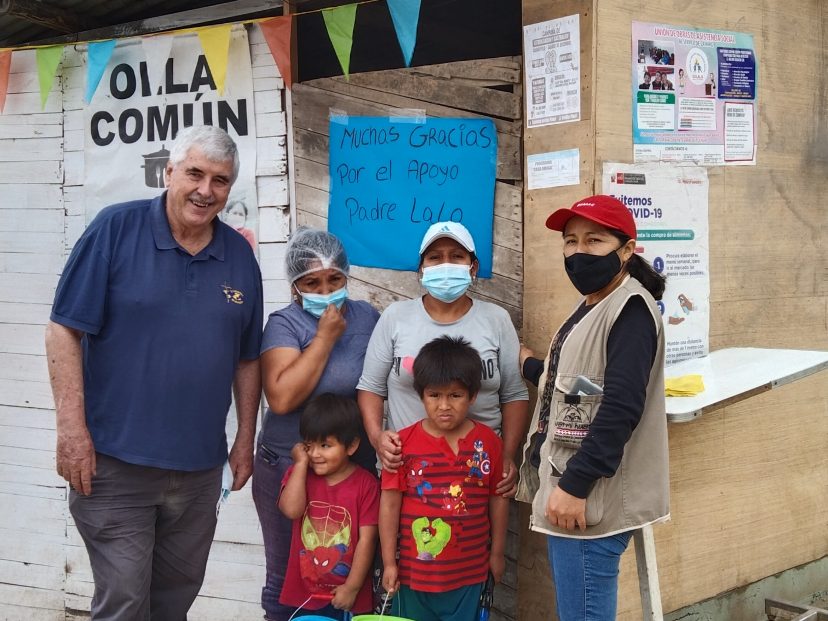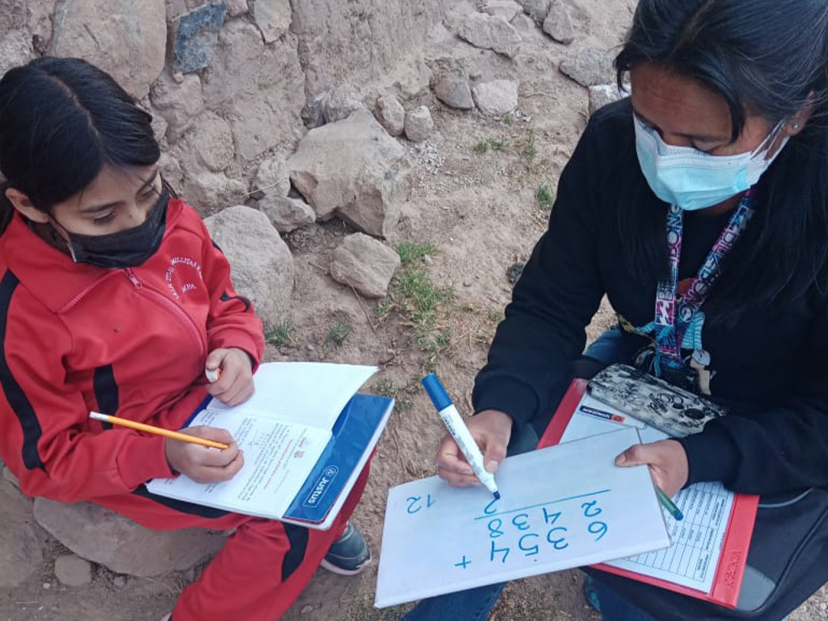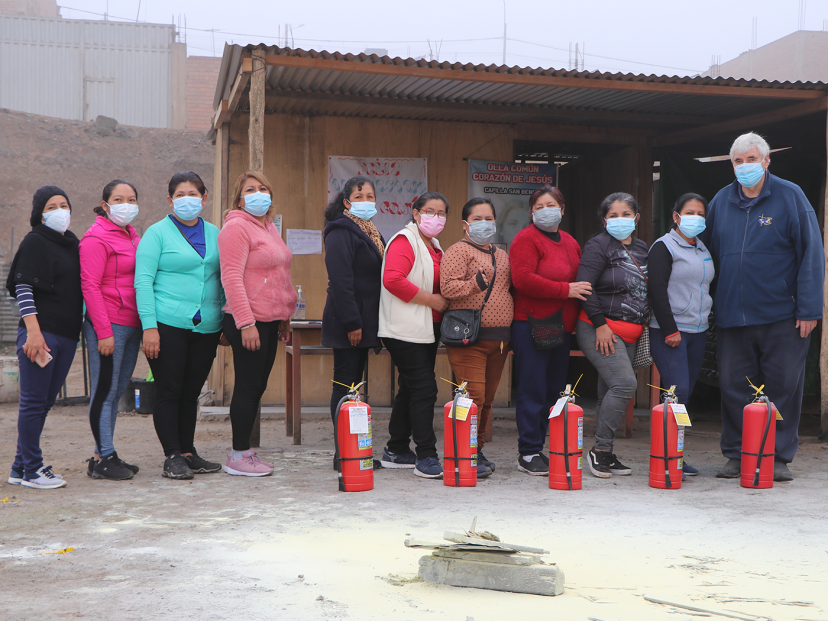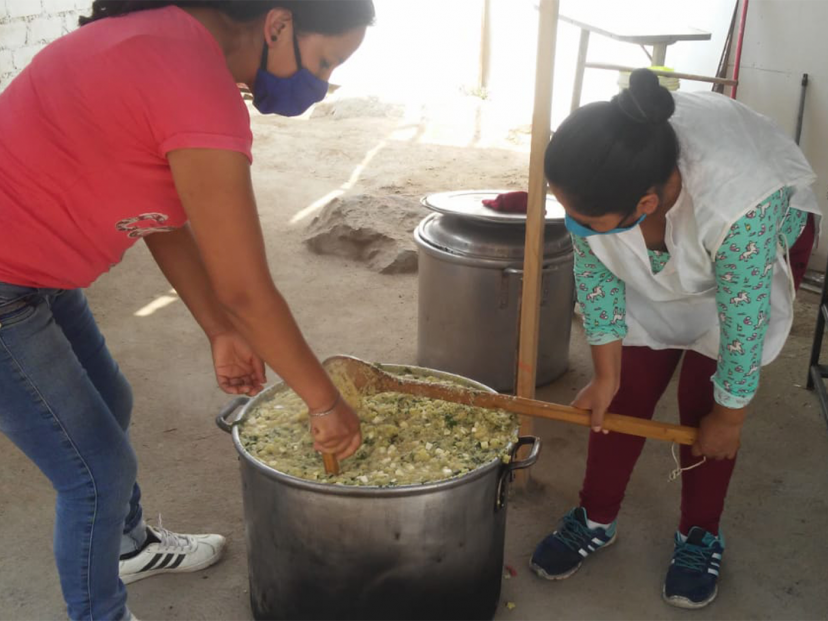Edward O’Connell was born in Taunton, Somerset on the 15th June 1945 after V.E. Day but before the atomic bombs were dropped on Japan.
He grew up on his grandfather’s farm near Langport, Somerset, then in Guildford where his father had jobs after being demobbed. The family moved to Wandsworth and then to Brixton following his Father’s work for the prison service. After completing his A Levels, Edward worked for a year in the Legal Department of Scotland Yard as a trainee Civil Servant “lawyer”, then for three years for Lloyds Bank, in two branches, Putney and Oxford Street, and finally in the O&M (Organization and Methods) Department over Cannon Street Station.
Whilst working for the bank, Ed lived with four men from Ireland who were in the Legion of Mary in the parish of Corpus Christi, Brixton Hill. One of the curates, Charles Walker, invited Ed to help him with the Young Christian Workers (YCW) Movement in the parish. The methodology of the YCW is: SEE, JUDGE and ACT. In the gospel enquiries, which were the JUDGE part of the methodology, Ed, began to reflect on the life of Jesus Christ and felt drawn to work for the Common Good, especially of the poor. Whilst he resisted the call for a couple of years, little by little the voice inside was demanding a response. That was when he picked up his sister’s copy of the Far East and saw an advert for late vocations and at the ripe old age of 22 decided it was the time to contact the Columbans and apply for the missions. He was attracted by the possibility of going to Ireland to study, to deepen his Irish connections, and was also attracted to the missions, where there were greater needs, having read of the Columban work with the Legion of Mary in China and, through the Far East, of the work in the Philippines and Latin America.
Ed’s calling from God was, in retrospect, an accumulative experience. In primary school, the White Father Missionaries (now called The African Missionaries) visited the school each year. Wearing their white robes, they were good fun and impressed him and his school friends. In secondary school, the Salesians were very down to earth men, playing sport with the students and helping them with school work. They had a great spirit about themselves and introduced Ed to the lives of Don Juan Bosco and Dominic Savio.
In September 1967 Ed went to Dalgan Park, near Navan, to the Columban seminary along with 32 other probationers. Being a late vocation, he studied for six rather than seven years, did his diaconate training in the parish of Our Lady Help of Christians, in Mottingham, South London and was ordained a missionary priest on the 29th April 1973 by the auxiliary Bishop of Southwark Archdiocese, Charles Henderson.
Ed had wanted, since early on in the seminary, to go to South America, having talked to missionaries home on holidays, and because he knew that the YCW was already in action there. He was fortunate enough to get an appointment to Peru, along with Pat Sayles, and they set out for their first missionary journey in October 1973.
From May 1974 to December 1983 Ed was assigned to the parish of the Risen Lord (Jesus Resucitado) a poor shanty town on the north side of Lima. He was involved in parish work, as assistant, and then from 1980 as parish priest, he specialized in youth work and accompanied women in situations of poverty, empowering them through the different stages, from manual work to literacy programme, from running communal kitchens to small businesses. In this period of time he helped form a small NGO called “Warmi”, supported by CAFOD, and the team worked directly with local women for their empowerment.
For many years, during this time, he was vice-dean of the deanery, one of many, that belonged to the Archdiocese of Lima. Also, from 1980 he coordinated the OTP programme in Peru, receiving Columban seminarians from Ireland and Australia.
Ed re-learnt almost everything on mission in Peru. From his understanding of God, as a God of life, to what Jesus came to achieve on earth, that of fulfilling the Father’s will by giving of his life to challenge the status quo, the vested interests that did not allow all access to a dignified life. He began to read history from the standpoint of the poor and discover in the Scriptures how important it was to have compassion and to speak out against injustices; to live in solidarity with the oppressed and marginalised, and to form and accompany communities of faith as Christians willing to work for the common good.
Ed was re-assigned back to Britain in November 1985. In January 1986 he began work as Justice and Peace officer, based in the parish of St. Gertrudes, South Bermondsey, London, in the Archdiocese of Southwark. He began to work with the Justice and Peace network of the dioceses of England and occasionally with the J&P network in Scotland. He soon realised the need to create a newsletter so as not to lose the contacts made on parish visits and to provide a platform for formation whilst highlighting issues that needed to be tackled. Ed helped to start the newsletter “Vocation for Justice”.
In 1992, he became the Regional Director of Britain and whilst continuing his work in J&P also began to relate to the benefactors through the three appeal letters each year and by participating, when available, in the mission appeals.
Ed was also invited onto the Board of CAFOD and Catholic Institute for International Relations (CIIR/Progressio) and was elected Vice President of the Conference of Religious of England and Wales. He made various visits to Central and South America on behalf of the Conference of Religious to investigate human rights abuses in these countries and to support those working for justice.
He completed his term as Director in 1998 and had a sabbatical year where he accompanied an old friend, John Medcalf, in his parish in Redhill, Surrey.
From March 1999 onwards Ed was re-assigned to the Region of Peru. He was appointed to the parish of Our Lady of the Missions, to accompany the then parish priest, John Boles. Again, Ed did a lot of work with youth through the confirmation programme, and also, along with the parish social worker, began pastoral work with women, especially those affected by violence. From 2002 onwards he was parish priest until the Columbans handed over the parish to the local diocese in February 2019.
Ed became Director of the Region of Peru in 2001 and did his best to see that all members found life giving work for themselves and for the people they served. Ed and his team built a Mission Centre to facilitate the formation of lay people from the parishes to become missionaries. Many went on mission with Columbans to the interior of Peru. Local churches heard of this Columban effort and requested help to develop Christian communities and train people to lead liturgies and sacramental programs.
In 2001, as part of the job as Director, Ed took on the role of chair of the Board of Governors of the Special Needs School Manuel Duato, which is situated on Columban land adjacent to the Centre House. It is the largest special needs school in the country. Today it supports over 400 students with various physical and mental disabilities, whose ages vary from birth through to primary school age. They also hold workshops for those unable to go to secondary school and organise an over 18 club to continue to keep active those who have left school but are unable to work.
Ed enjoyed his time as Director but was pleased to hand over the reins in 2004. He still kept on the work in Our Lady of Missions parish, becoming the parish priest in 2003, and worked there with priests from Australia, Ireland, Korea and Peru and seminarians from Fiji and the Philippines. There were 12 communities in the parish, best served by three priests, but on occasions there were only two, which was quite demanding. With the help of the people and the Columbans, Ed helped to build the parish halls and eventually all 12 chapels before handing over the parish to the diocese in February 2019. There was and still is, an enormous level of participation from the parishioners. Each chapel has a leadership team and their own ministers of the communion willing and able to lead Sunday and weekday liturgies and visit the sick. The Columbans also helped to develop health promoters and an active youth program as well as having adult and youth catechists who ran all the sacramental programs.
In 2004, the health promoters of the parish of Our Lady of the Missions went on mission to San Benito, a poor township on the northern outskirts of Lima in the foothills of the Andes. They saw the need there to accompany the women of the township in their efforts to bring up their families, so Ed assisted in forming a new NGO Warmi Huasi (Women’s House) to support these ladies and their families.
Work in San Benito began in 2006 with a course in First Aid. The team also ran a nutrition program for young children and a women’s program to accompany families in situations of violence. The team consisted of two staff members, a social worker from the parish and an obstetrician who lived locally in “Misiones” and wanted to work with those in need. Their efforts were supported by CAFOD, family and friends, and a little later by Misean Cara, an agency that works for the Conference of Religious of Ireland and obtains the funds from Irish Aid.
Shortly after this, a program was introduced to support working mothers who needed childcare in order to work. Ed and his team developed homework clubs which ensured children remained safe whilst their mothers worked. Four such clubs were set up, with twenty children participating in each, helping hundreds of children over the years.
Next came the idea of a reading club. This has proved most successful with families spending their Saturday afternoons reading and taking part in the cinema forum, puppet shows and workshops on social skills, the rights of children and protecting themselves from risks.
For the toddlers, Ed’s team opened up a play/toy centre, on a piece of land donated by the San Benito community. It is a simple building, which allows mothers and older brothers and sisters to bring along the youngsters from 3 to 6 years of age, three afternoons a week, for them to play with donated toys and games.
Having noticed that some of the children had speech and learning difficulties and others, posture problems, a therapy club was started in the Warmi Huasi centre in 2016. One therapist is paid for by the local Municipality, two by the parents and one by Warmi Huasi. Parents in the community participate in the running of the therapy club, which is very popular, attracting up to 40 families four mornings a week.
As well as providing safe places for children and adolescents to relax, children interested in having their voices heard in the wider community and at a municipality level formed the Organization of Children of San Benito for Action (ONSBA) with the help and support of the Warmi Husai team. They went through several years of formation with workshops on self-esteem, children’s rights, how to protect themselves against abuse, team work and how to run an organization. They registered legally as a children’s organization and participated in the participatory budget of the Municipality of Carabayllo for funding of community projects. On several occasions they have succeeded in gaining funds for their community.
In 2014 Ed and the Warmi Husai team visited Pausa, Province of Paucar de Sara Sara, high up in the Andes Mountains in the southernmost part of the department of Ayacucho. The parish priest was worried about the local children in his community, at risk of abuse and neglect. Deciding it would be good to have experience working in the province, and outside of Lima, the team established a base in Pausa. They set up a reading club in the main primary school of Pausa and a homework and reading club in the town of Lampa, with over 160 children benefiting from the free services across both sites.
Ed had learnt from Lima that it was important for the children to acquire social skills, so children’s committees in Pausa and Lampa were set up, offering them, with the permission of their parents, workshops on self-esteem, children’s rights, how to protect themselves against abuse, team work and how to run an organization. This gave the children both a voice in the community and at municipal level, to remind the adults of children’s rights, and the possibility of exercising their citizenship by working for the common good, through providing services, such as play days, cine fora and a mobile reading club to all the children of their towns and the surrounding countryside.
As well as accompanying the children and adolescents with their community activities, the Warmi Huasi team has worked alongside the Provincial Municipality of Paucar de Sara Sara in the formation of a COMUDENA (Municipal Committee for the Defence (of the Rights) of Children and Adolescents). Staff have helped to train up the different participants, such as municipal officials, education and health representatives, public prosecutors, police and community leaders to help them with their roles on the committee.
One of the tasks for 2020 will be to carry out a survey of how many disabled children and adolescents there are in the province and find ways to improve the quality of their lives. In Pausa, there exists a special needs school which Ed hopes to link up with the Manuel Duato special needs school in Lima, allowing parents and teachers to gather information and ideas in how best to support these families in their province.

